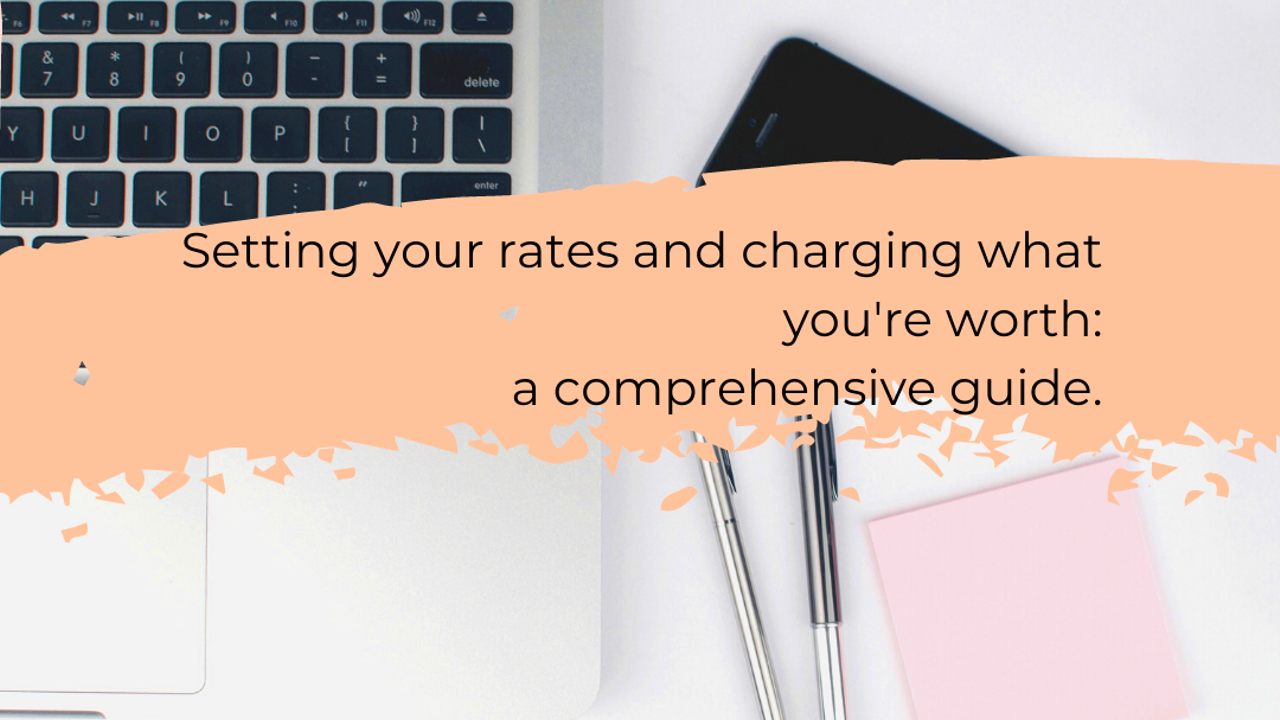In fact, freelance copywriting goes beyond the plain act of putting words on paper; it entails the creation of messages that resonate with audiences and drive them into action. A freelance copywriter’s job encompasses the development of content across different platforms such as websites, billboards, social networks among others. This kind of writing demands a rare combination of imaginative power, commercial expertise, and comprehension of human motivation.
Different firms depend on freelance copy writers to help them convey their brand’s story in an effective way. Writing product descriptions that are compelling or coming up with blog posts that attract readers involve the art of copywriting whose main aim it is to make sure that companies become successful. It is important for anyone thinking about becoming a freelance copywriter to know what the environment is like and which abilities they will require in order to be successful.
Factors Influencing Copywriting Rates

Freelance copywriting is a tricky business in rate setting. There are numerous parameters involved and having an idea of them will enable you to decide what to ask:
- Experience Level: Beginners may charge less than those with years of experience.
- Specialization: Copywriters focusing on niche markets (like tech or healthcare) often command higher fees.
- Project Complexity: More complex projects that require research and strategy typically come with higher rates.
- Client Budget: Understanding a client's budget can help you negotiate better and position your services appropriately.
- Market Demand: Rates can fluctuate based on demand in the freelance market. Keeping an eye on trends can help you adjust your rates.
Also Read This: What is Email Copy on Fiverr?
Different Pricing Models for Copywriters

There are different pricing models for copywriting services that you could think about when it comes to charging for them. Every model has its own merits and demerits, thus selection relies mostly on individual tastes as well as projects:
| Pricing Model | Description | Pros | Cons |
|---|---|---|---|
| Hourly Rate | Charging based on the time spent on a project. | Simple to calculate; ideal for short-term projects. | Clients may focus on hours rather than results. |
| Per Project Fee | Charging a fixed amount for a complete project. | Clear budget for clients; can lead to higher earnings for experienced writers. | Risk of underestimating time and effort required. |
| Retainer Fee | Clients pay a regular fee for ongoing work. | Stable income; builds long-term relationships with clients. | Requires consistent work to maintain value. |
| Performance-Based Pricing | Charging based on results achieved (e.g., sales generated). | Aligns your interests with the client’s success. | Income can be unpredictable; hard to measure performance accurately. |
For your thriving as a freelance copywriter, price model selection is very important. When making this decision keep in mind about whom do you want to work with and what kind of projects interest you most.
Also Read This: Is Fiverr Good for Music Promotion?
Setting Your Rates as a New Copywriter

For those starting freelance copywriting jobs are often found confused when coming up with price tags. One of the common mistakes made by beginner is that they often end up under pricing their own work but it’s crucial to come up with prices which reflect your abilities and what you could offer as a writer. This article provides some advice on how to form your first pricing structure:
- Research Industry Standards: Look at what other freelance copywriters are charging. Websites like Upwork and Fiverr can give you a good idea of average rates.
- Consider Your Skills: Even if you're new to copywriting, any relevant experience or skills (like marketing or SEO) can justify higher rates.
- Start Low but Not Too Low: It’s okay to start with lower rates to attract clients, but avoid pricing yourself so low that it undermines your worth.
- Set Clear Goals: Think about how much you want to earn and how many hours you’re willing to work. This will help you set realistic rates.
- Be Open to Adjustments: As you gain experience and build your portfolio, don't hesitate to increase your rates.
Also Read This: What Is My Fiverr Email Address?
Adjusting Rates Based on Experience and Skills
It’s crucial to re-assess your fees as you acquire more knowledge and sharpen your skills. Your career path as a copywriter will ultimately bring about a shift in your capabilities and the worth of what you provide. This is how you can effectively change your rates:
- Track Your Progress: Keep a record of your projects and client feedback. Positive testimonials and successful campaigns can support your decision to raise your rates.
- Evaluate Your Skills: If you acquire new skills, such as SEO optimization or advanced marketing techniques, consider how these enhance your service offerings.
- Understand Client Perception: If clients consistently seek you out for your unique style or expertise, this is a sign that your value has increased.
- Annual Reviews: Set a schedule (like once a year) to review your rates based on your growth and market changes.
- Communicate Changes: When raising rates, inform your current clients ahead of time. Explain the reasons behind the increase to maintain transparency.
Also Read This: How to Verify Fiverr Account With USA Number
Communicating Your Value to Clients
It is essential to inform clients in a way that makes them see your worth for better prices and lasting relations. You should differentiate yourself from other copywriters to the clients. Below are some of the ways through which you can demonstrate this worth:
- Build a Strong Portfolio: Create a collection of your best work to demonstrate your writing skills and versatility. Make sure to include a variety of projects.
- Highlight Client Success: Share specific examples of how your writing has positively impacted clients’ businesses, such as increased sales or engagement.
- Personal Branding: Develop a personal brand that reflects your unique voice and style. This can help clients see what you bring to the table.
- Clear Communication: Be open and clear about your process, timelines, and what clients can expect from you. This builds trust and sets the stage for a successful collaboration.
- Follow Up: After completing a project, follow up with clients to gather feedback. This shows you care about their satisfaction and are eager to improve.
By concentrating on these tactics, you are able to express your worth well, provide reasons for your charges, as well as develop lasting connections with your customers.
Also Read This: How to Write SEO-Friendly Headlines for Your Fiverr Blog
Common Mistakes to Avoid When Setting Rates
Establishing rates for freelance copywriters is not an easy task and it’s easy to make mistakes that can affect your income and reputation. By recognizing these common pitfalls, you can have a better grip on your pricing strategy. Here are some mistakes to watch out for:
- Undervaluing Your Work: It’s common for new freelancers to charge less than they deserve. Remember, your skills and time are valuable!
- Not Researching the Market: Failing to check what other copywriters charge can lead to setting rates that are too high or too low. Take the time to research industry standards.
- Being Inconsistent: Changing your rates frequently can confuse clients. Aim for consistency unless you have a good reason to adjust.
- Ignoring Client Budgets: While you shouldn’t compromise your worth, being flexible with your rates for long-term clients can foster loyalty and repeat business.
- Not Reviewing Your Rates Regularly: Your skills and the market change over time. Make it a habit to review and adjust your rates at least once a year.
By avoiding such errors, you can build a solid base for yourself as an independent copywriter thereby making sure you are compensated well based on your skills.
Also Read This: How to Start a New Paragraph in Fiverr
Frequently Asked Questions
In the initial stages of your career as a freelance copywriter, there might be a lot of uncertainties regarding rates, client relationships and industry standards. The following are some of the frequently asked questions:
| Question | Answer |
|---|---|
| How do I know what to charge? | Research what other copywriters in your niche charge and consider your skills and experience when setting your rates. |
| Should I charge by the hour or per project? | It depends on the project. Hourly rates are great for short tasks, while project fees work well for more complex assignments. |
| How can I justify my rates to clients? | Showcase your portfolio and provide case studies that highlight your past successes and how you can add value to their projects. |
| What if a client wants to negotiate my rates? | Be open to negotiation, but also be clear about your bottom line and the value you bring to their project. |
Conclusion
In October twenty twenty-three, you were learning data.
Setting prices as a freelance copywriter is both an art and a science by you. There has to be a sound grasp of one’s abilities, changing patterns in the market, and the amount of worth attached to what a client receives. Establish a successful freelance career by steering clear of usual mistakes, reviewing your rates with increase in skill, and clearly expressing your worth. Keep in mind that your prices should not only represent the hours spent on writing but also represent experience as well as understanding on the topic under discussion. Study continuously, adapt accordingly, and do not shy away from increasing them whenever you improve your writing ability.happy writing!




